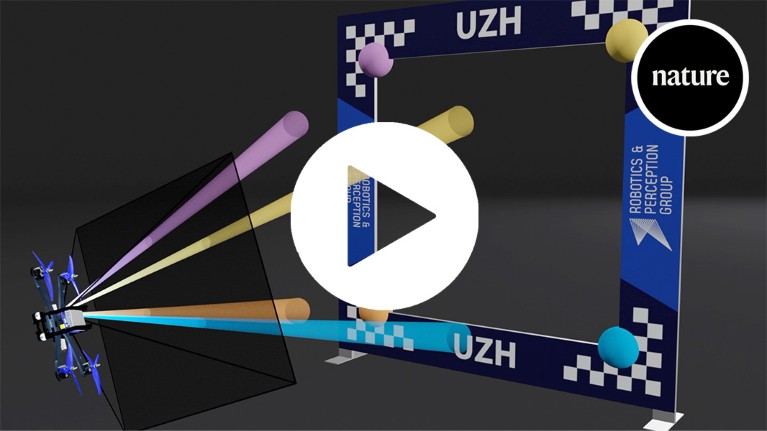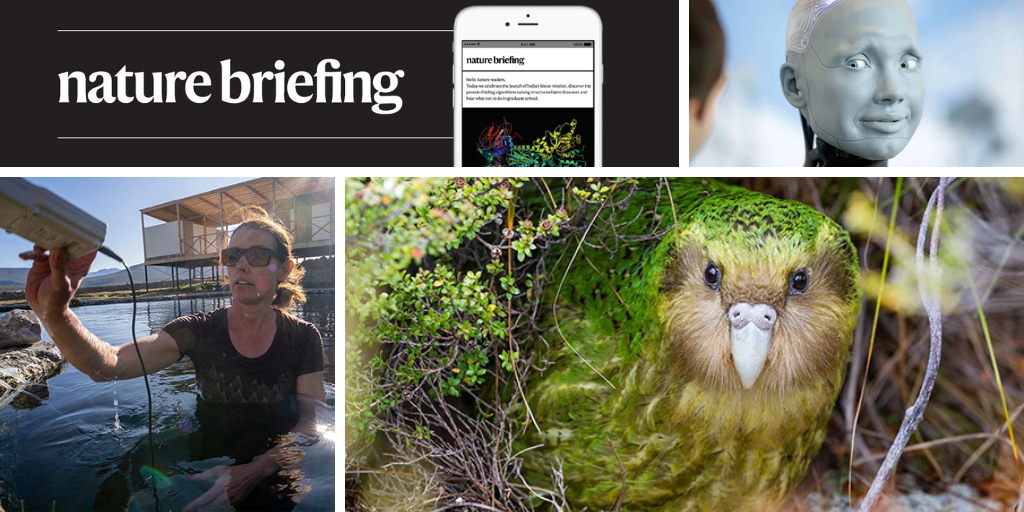Hello Nature readers, would you like to get this Briefing in your inbox free every day? Sign up here.
Emperor penguin chicks need stable sea ice to support them while they develop their mature feathers (Credit: vladsilver/Shutterstock)
Last year was catastrophic for Emperor penguin (Aptenodytes forsteri) breeding in Antarctica because of the record-low extent of winter sea ice. Satellite images revealed that penguins abandoned all but one of their breeding colonies in the Bellingshausen Sea. “This one event is not going to doom the species,” says seabird ecologist Annie Schmidt. But for these colonies — about 10,000 breeding pairs in total — “I think we’re past the tipping point”, says ecologist Gerald Kooyman. Climate change is the key cause, but scientists recommend limiting fishing and tourism so that penguins are at least well-fed and less stressed.
Reference: Communications Earth & Environment paper
Nanoscience researcher Zijie Yan was killed yesterday in a shooting at Caudill Labs, a science building at the University of North Carolina (UNC) at Chapel Hill. Tailei Qi, a PhD student in Yan’s lab, has been charged with first-degree murder. Yan “was a beloved colleague, mentor and friend to many on our campus”, wrote the university’s chancellor, Kevin Guskiewicz.
The university’s independent student newspaper, The Daily Tar Heel, published a heartbreaking front-page image of text messages sent and received by UNC students during the three-hour lockdown of the campus.
Nature | 4 min read
The amount of blood that can be absorbed by menstrual products, such as tampons and pads, can vary wildly from what is advertised on the box, researchers have found. The developers of these products usually use a saline solution, not real blood, to test absorbency. “The saying ‘blood is thicker than water’ is technically true,” says physician-scientist and co-author Bethany Samuelson Bannow. Accuracy is important: doctors often diagnose heavy bleeding — which can be a sign of serious health conditions — by how often a person needs to change their period product.
Scientific American | 5 min read
Reference: BMJ Sexual & Reproductive Health paper
Features & opinion
Emerging treatments for achondroplasia, a form of dwarfism, offer parents the promise of making their children grow taller, faster. But “height is not a medical problem”, notes genetic counsellor Andrea Schelhaas, who works with people who have achondroplasia and has the condition herself. Questions remain about whether the drugs improve health by addressing the complications that can accompany the disorder, such as pinched spinal cords. Parents — most of whom are of average height themselves — are left to make a tough choice on the basis of incomplete data.
Nature | 14 min read
Michelle Alozie is a professional footballer — she played on the Nigerian team at the FIFA Women’s World Cup — and a cancer research technician at Texas Children’s Hospital. “Day to day, I go to training in the morning and head to the labs in the afternoon right after,” she says. “They’re two really big passions of mine, and I wouldn’t want to choose between them.”
Nature | 5 min read
Done right, markets in carbon offsets — credits that pay someone else to reduce atmospheric carbon on your behalf — could effectively drive the removal of billions of tonnes of carbon dioxide, argue four sustainability researchers. Pricing credits according to how much carbon is removed, for how long and how reliably would direct funding to the most-effective climate solutions, they write.
Nature | 10 min read
Artificial intelligence (AI) has moved on from chess and video games. One has finally beaten human competitors at a real-life sport — drone racing. “Most recent advances in deep reinforcement learning have been achieved in domains that can be easily simulated,” says engineer Elia Kaufmann, who worked on the groundbreaking system. “This challenge requires pushing a real physical robot to its limits.”
Nature | 3 min video
Reference: Nature paper

